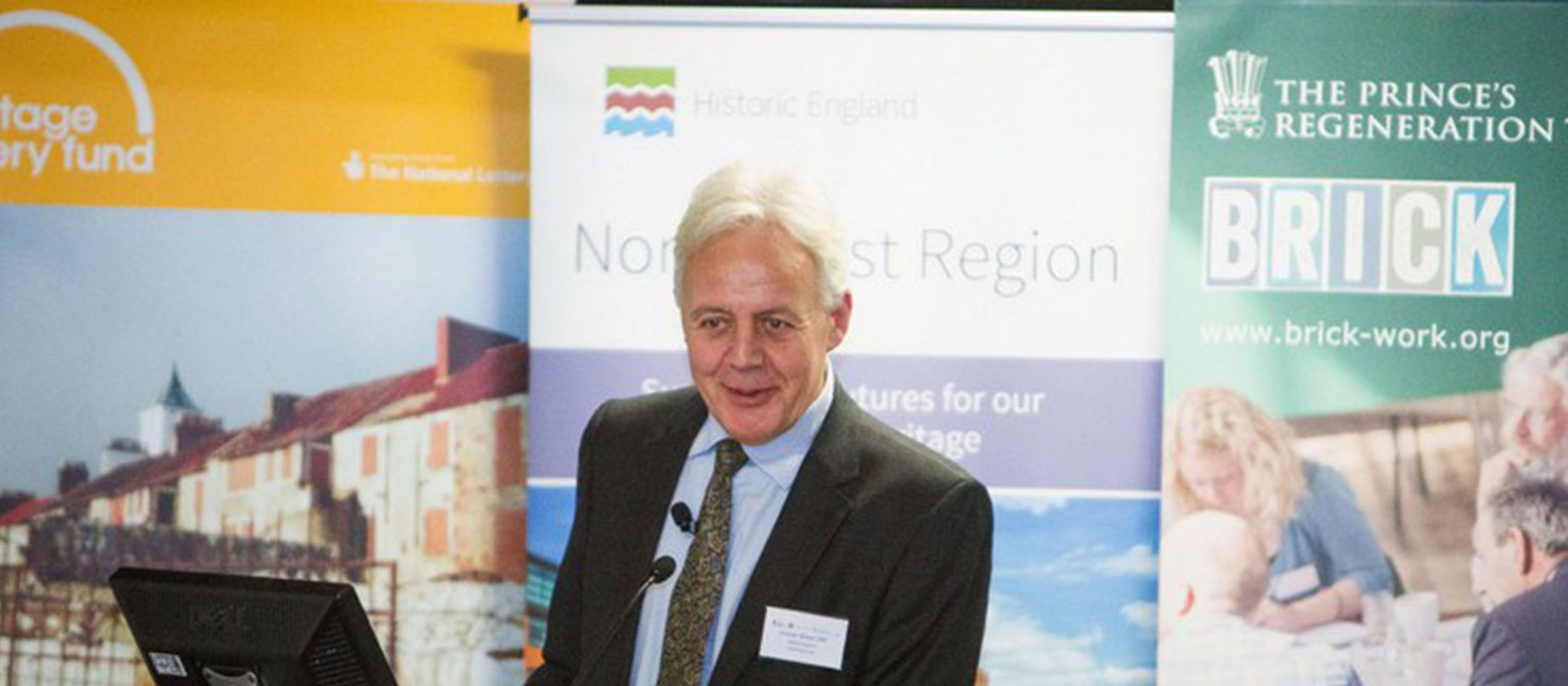‘Standing on the Shoulders of Giants’: The Northern Powerhouse
by Duncan Wilson, Chief Executive, Historic England
From the monumental textile mills of Yorkshire and Lancashire to the coalfields of the North East, and the bustling trading ports of Liverpool and Hull, the North of England was the powerhouse of the world's first industrial revolution. These major contributors to our nation's story also forged much of its distinctive visual identity.
In 2014, the Government developed a new 21st century concept of the Northern Powerhouse, designed to rebalance the economic power between the north and south of the country.
This commitment has recently been strengthened by the appointment of the first Minister for the Northern Powerhouse, Andrew Percy MP. We are delighted that the Minster has written an article for our online debate.
The Government's main objective is to achieve a sustained increase in productivity across the whole of the North (North East, North West and Yorkshire). This will be delivered through improved transport connections, skills and the promotion of trade. Home to a population of more than 15 million people and some of the country's largest cities, the potential for northern economic growth is huge.
The Northern Powerhouse also provides a once-in-a-generation opportunity to embrace the key physical feature of northern England's cultural identity: its remarkable historic buildings and landscapes. They are not just a golden thread that connects the present day to past generations and their changing stories. They are the landscape from which local culture springs and a core part of the identity of the people who live and work in the North of England. They are also loved and cared for by millions of volunteers, visitors and workers every day. In order for the Northern Powerhouse to deliver something that is authentic and sustainable as well as inspiring and momentous, we must embrace our heritage from the very start.
This edition of Heritage Online Debate will look at both the challenges and opportunities which the Northern Powerhouse concept presents, and the work which Historic England is doing to help the government achieve its objectives.
Our contributors discuss the impact of the devolution agenda on management of heritage assets; the integration of significant new transport infrastructure in historic settlements and landscapes; heritage-led regeneration of deprived districts; the repurposing of textile mills to generate new homes and workplaces; and how to harness voluntary and community action.
We recently commissioned a report by Cushman and Wakefield Engines of Prosperity into the future of textile mills in West Yorkshire. It told us that - with a bit of imagination and creativity - large, historic industrial and commercial complexes have serious potential to support the Government's Powerhouse aims. The recent development of Stanley Dock in Liverpool through private investment is a case in point.
But we need to act quickly. Current Historic England funded research is revealing the rate at which such buildings are disappearing from our landscapes. For example, we know that we have lost 44% (423 in total) of all mills in Greater Manchester that were standing in 1988.
Our new Heritage Action Zones (HAZ) can help. They will focus our expertise and resources - listing, planning and research - on supporting historic places in decline, turning deprivation and dilapidation into regeneration and renewal.
It's exciting that four of our newly launched Heritage Action Zones are located in the North. In the Cumbrian market town of Appleby, we will help revive the heritage-led tourism economy following the catastrophic winter floods of 2015/16. Our Sunderland Historic High Streets HAZ will reinvigorate key historic buildings in the city's former commercial heartland. In the Earl's Village of Iron and Coal in Elsecar, South Yorkshire, we will support the growth agenda by helping Barnsley Council identify appropriate sustainable development sites. Hull's Old Town, which has long been in economic decline, still has its medieval street pattern. Here we will capitalise on Hull City of Culture 2017 to advise on and support the Council's regeneration plans.
We look forward to working with partners across the North to, in the words of the Minister for the Northern Powerhouse, "use our past to build a brighter future".
Please share and comment
Please send your responses to Sarah Tunnicliffe and share this article on social media via the tab on the left.





